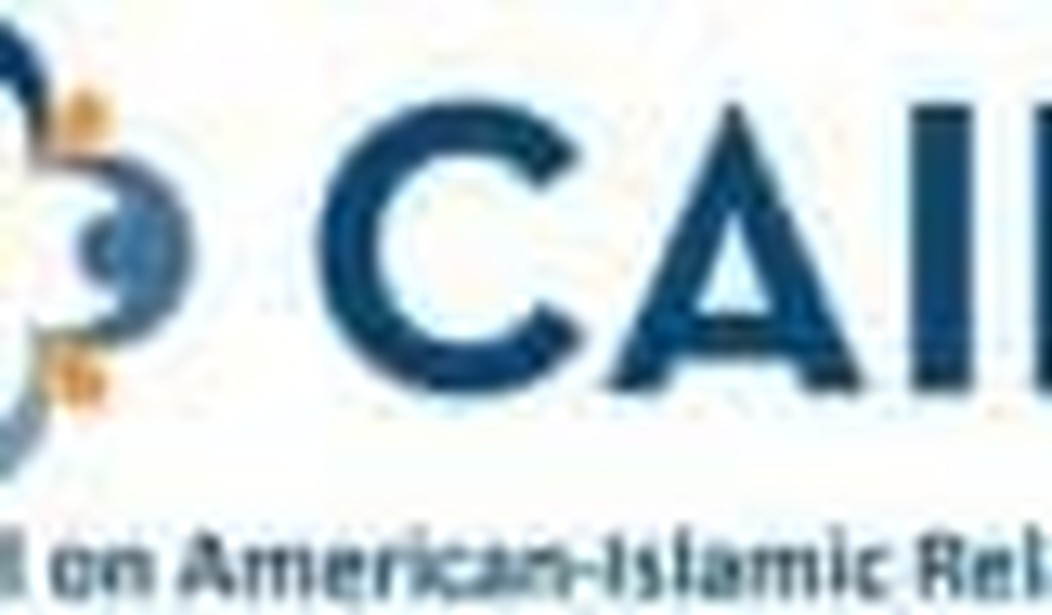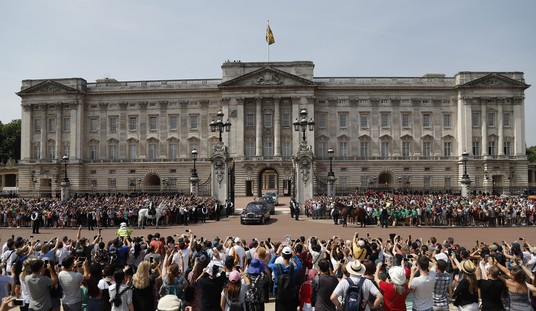Muslim Brotherhood affiliates like the Council on American-Islamic Relations, the Islamic Society of North America, and the Muslim American Society have cast themselves as the gatekeepers to the Muslim-American community. A new Gallup poll shows that the Brotherhood’s campaign to lead the Muslim-American community through these fronts has failed, as only a small minority feel represented by them.
The Abu Dhabi Gallup Center asked Muslim-Americans which group represented them, if any. The Council on American-Islamic Relations had the highest level of support, with 12 percent of men and 11 percent of women choosing it. The Islamic Society of North America came in second, with four and seven percent of men and women choosing it, respectively. The Muslim Public Affairs Council came in third, with six percent of men and one percent of women. The Islamic Circle of North America came in last, with 2 percent of men choosing it and less than one percent of women choosing it.
Altogether, that means only 24 percent of Muslim-American men and 19 percent of Muslim-American women feel represented by one of the above five Muslim Brotherhood fronts. Of these, a significant portion are likely unaware of their favored organization’s ties to the Muslim Brotherhood and Hamas. The ability of these groups to jointly mobilize this minority of Muslim-Americans in order to influence the political process, as well as the rest of the Muslim-American community, is not to be overlooked. However, the survey shows that a majority of Muslim-Americans do not look to the Brotherhood network for leadership, and it is susceptible to a challenge from within the community if enough resources are available.
The Brotherhood network has taken a major hit since 9/11. Its support was further damaged when CAIR and ISNA were labeled “unindicted co-conspirators” in the Holy Land Foundation trial and tied to the Brotherhood and Hamas by the federal government. In 2007, the Washington Times reported that CAIR’s membership fell from 29,000 in 2000 to less than 1,700 in 2006. This caused annual revenue from membership dues to also decline from nearly $734,000 to less than $59,000, forcing CAIR to rely upon about two dozen donors for most of its budget.
The Gallup poll also found that 81 percent of Muslim-Americans support a two-state solution to the Israeli-Palestinian conflict, which violates a core tenet of the Islamist ideology. Only 10 percent say killing civilians can sometimes be justified, the lowest of the religious groups surveyed. In 2007, a Pew poll found that 78 percent of Muslim-Americans feel suicide bombings are never justified. Most interestingly, the survey found that only 50 percent of Muslim-Americans take the Koran entirely literally.
The picture isn’t entirely rosy. A small minority can do horrible things if radicalized and indeed, the Obama administration agrees that homegrown terrorism is on the rise. The director of the National Counterterrorism Center, Michael Leiter, said in September 2010 that the number of plots against the American homeland “have surpassed the number and pace of attacks during any year since 9/11.” Likewise, Attorney General Eric Holder said, “You didn’t have to worry about this [homegrown terrorism] two years ago — about individuals, about Americans — to the extent that we now do.”
In the 2007 Pew survey, five percent of Muslim-American respondents had a favorable or somewhat favorable opinion of al-Qaeda, with another 10 percent viewing it “somewhat unfavorably.” One-fourth did not give an opinion. Of those below 30 years old, one-fourth felt that suicide bombings can sometimes be justified. Seven percent viewed al-Qaeda favorably, and another 16 percent saw them “somewhat unfavorably.” This is a minority, but it is a dangerous minority, and the homegrown extremism trend indicates it is becoming increasingly radicalized.
Keep in mind that al-Qaeda viciously attacked the U.S. on 9/11 and has killed many Muslims. Furthermore, only 40 percent of Muslim-Americans believe that Arabs carried out the attacks, indicating support for conspiracy theories claiming the terrorist group is a Mossad and/or CIA front. It is disturbing to think of how high support for Hamas, Hezbollah, and the Muslim Brotherhood must be, given their more careful political strategy and relative restraint when compared to al-Qaeda.
The survey finds that a strong obstacle to Islamism in the Muslim-American community is the 65 percent of adults who came from other countries. It states, “Native-born Muslims express overwhelming support for the notion that mosques should express their views on social and political matters. By contrast, a large majority of foreign-born Muslims — many of whom are from countries where religion and politics are often closely intertwined — say that mosques should be kept out of political matters.”
Nearly half of Muslim-Americans oppose mixing the mosque and politics, and this is largely due to Muslims who have experienced Sharia-based governance and know what it entails. This same dynamic is likely why the Muslim Brotherhood fronts have failed to get the Muslim-American community behind them.
It is encouraging to know that Muslim foreigners can act as a bulwark against extremism among Muslims born in the country, but what will happen as more and more Muslims are born in America and less are from overseas? The Muslim Brotherhood fronts may have failed among the current generation, but that doesn’t mean they’ll also lose the next one.









Join the conversation as a VIP Member